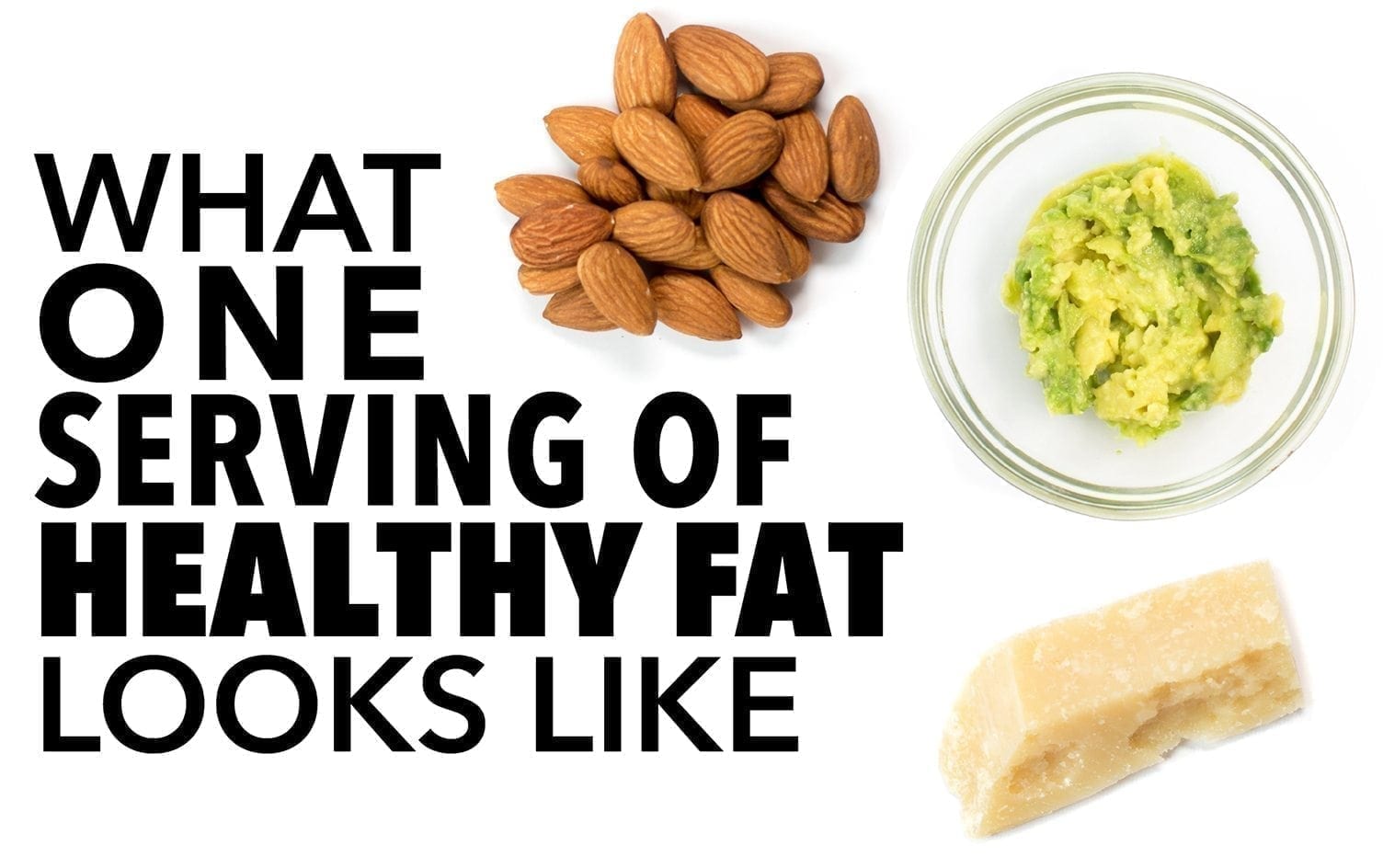Dietary fat is an important part of your diet and is essential for supporting cell growth and protecting your body organs. It’s also key in helping you absorb fat-soluble nutrients like vitamins A, D, E and K. The Institute of Medicine (IOM) suggests that fats comprise 20-35% of total calories in your diet.
Fat is found in a variety of foods, either as naturally occurring or as added fat during processing and cooking. Naturally occurring fats tend to be found in dairy, meat and fish, nuts and seeds, oil and fatty fruits. Keep in mind that not all fats are created equal when it comes to health. Here’s a side-by-side comparison of 5 different kinds of fat:
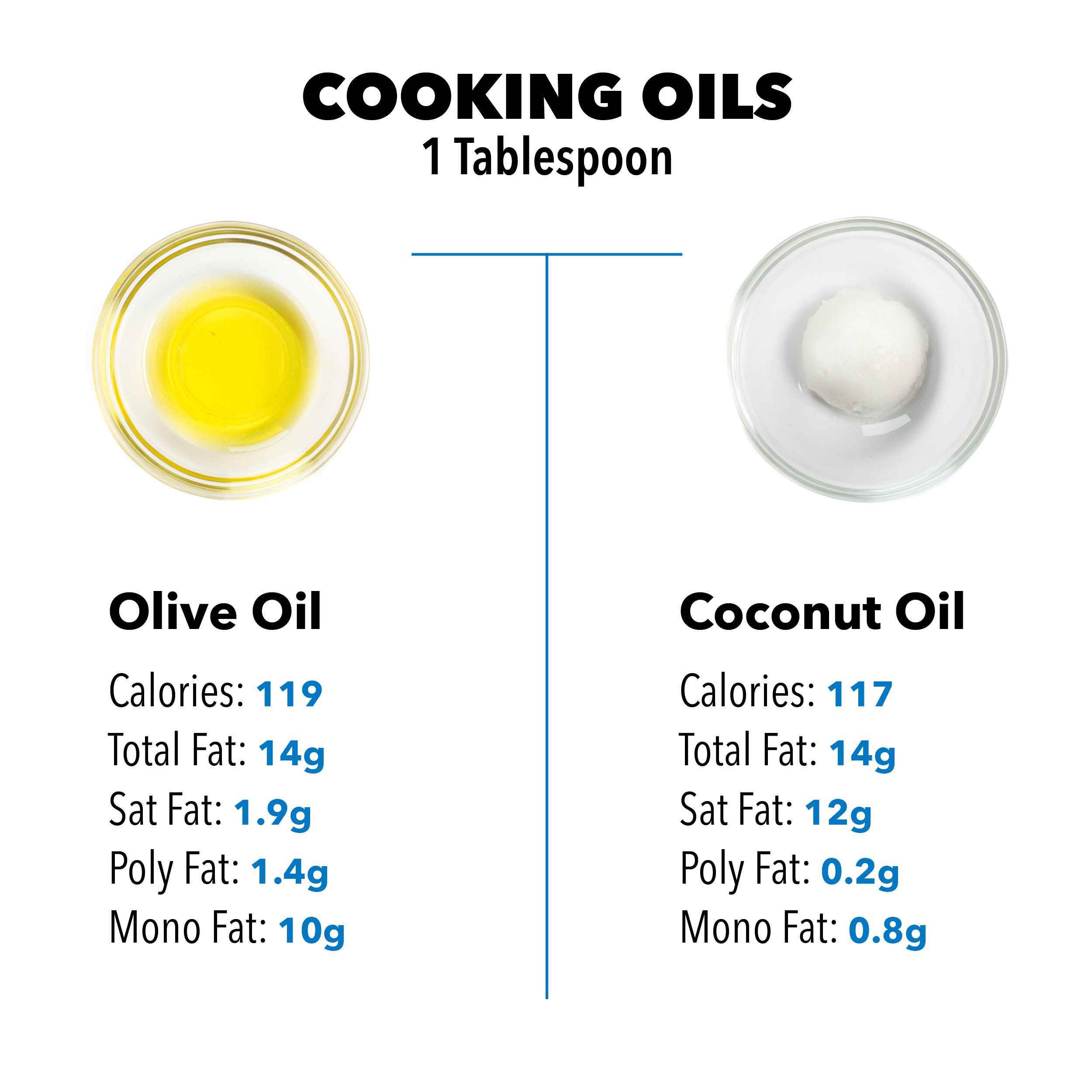
Among plant oils, olive oil is the highest in heart-healthy monounsaturated fats. Though high in saturated fat, it’s high lauric acid content makes virgin coconut oil a great substitute for other types of saturated fats, such as lard and butter, and trans fats like vegetable shortening.
Fun Fact: Lauric acid is a medium-chain fatty acid which is processed by the liver and is quickly converted into energy by cells. Some studies suggest these particular fatty acids may be beneficial for weight loss –– in moderation, of course.
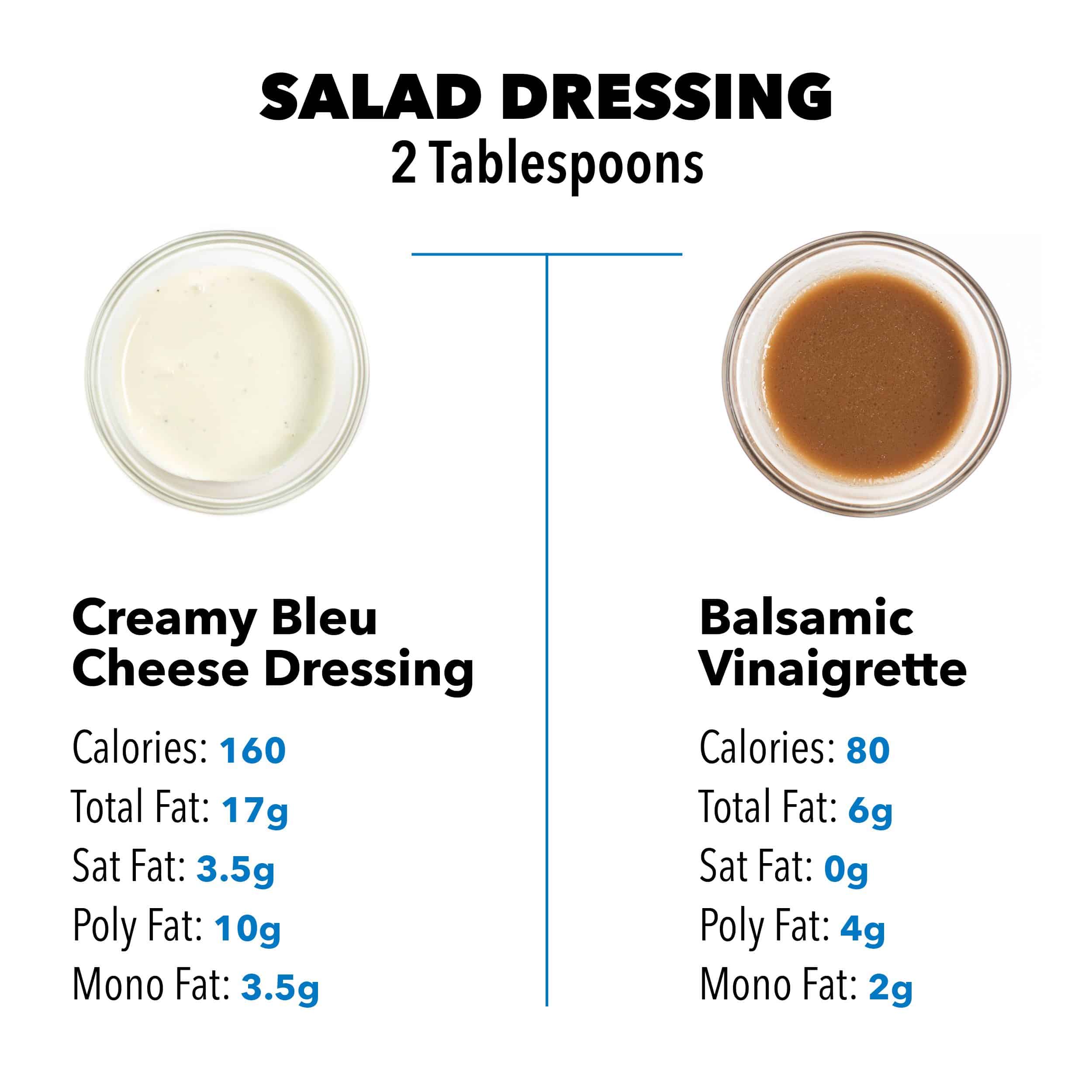
Serving for serving, creamy dressings can have double the calories of their lighter, vinegar-based counterparts due to higher fat content, but lower-calorie options can be much higher in sugar. A basic store-bought balsamic vinaigrette or Italian dressing can pack more than a teaspoon, or 4 grams, of sugar per serving.
Salad dressings can also be sneaky sources of sodium. If you’re keeping close tabs on saturated fat or added sugar, a simple homemade vinaigrette is your best bet because you can control the ingredients.
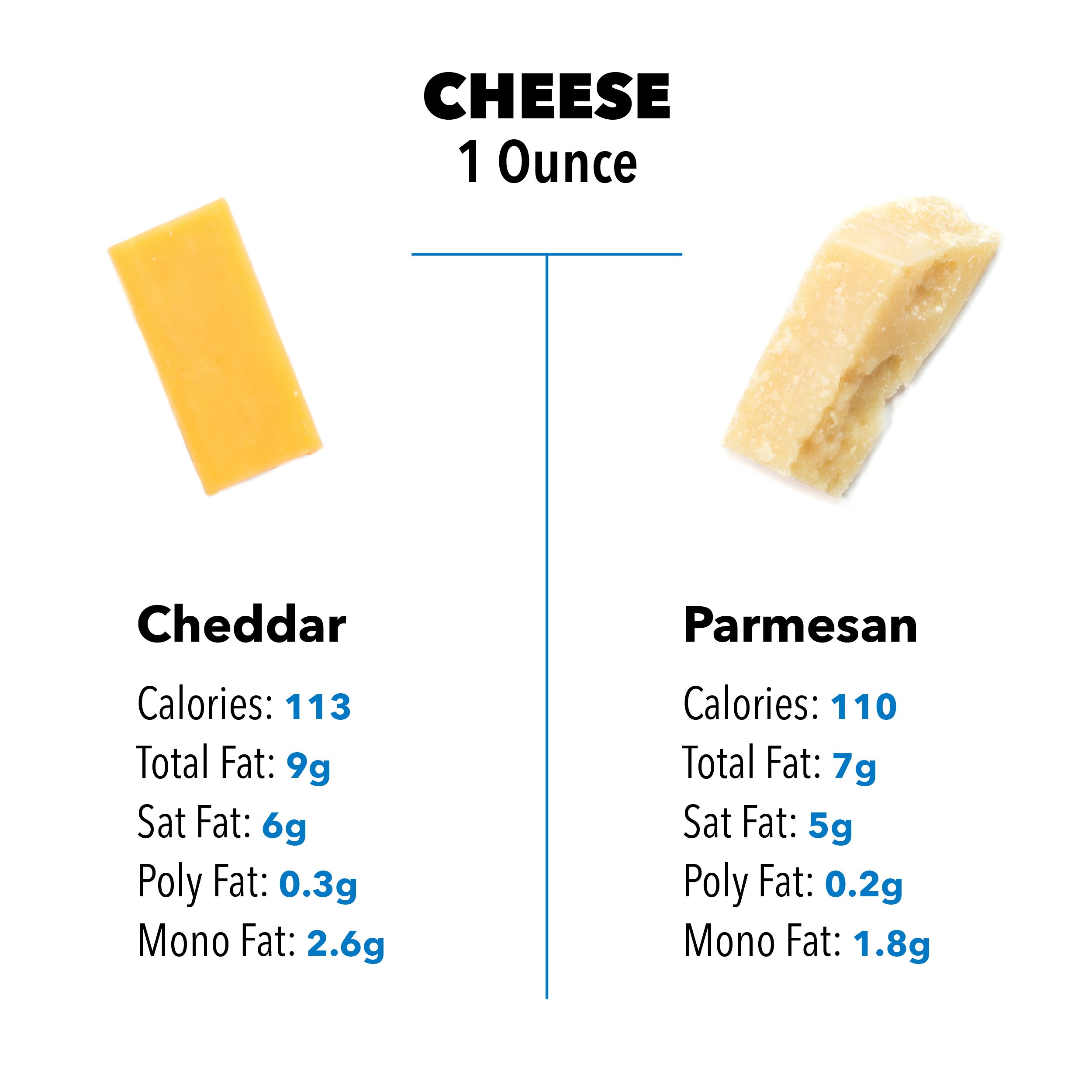
Most cheeses contain comparable calories per 1-ounce serving but can differ greatly in other nutrients like sodium, calcium and protein. While higher in protein and calcium than other cheeses, parmesan is also packed with sodium, providing nearly 20 percent the daily recommended amount in a meager 1-ounce serving.
Fun Fact: Parmesan cheese packs 10 grams of quality protein in a 1-ounce serving compared to cheddar which has 7 grams.
Not-So-Fun Fact: The same 1-ounce piece of parmesan also contains nearly 450mg sodium.
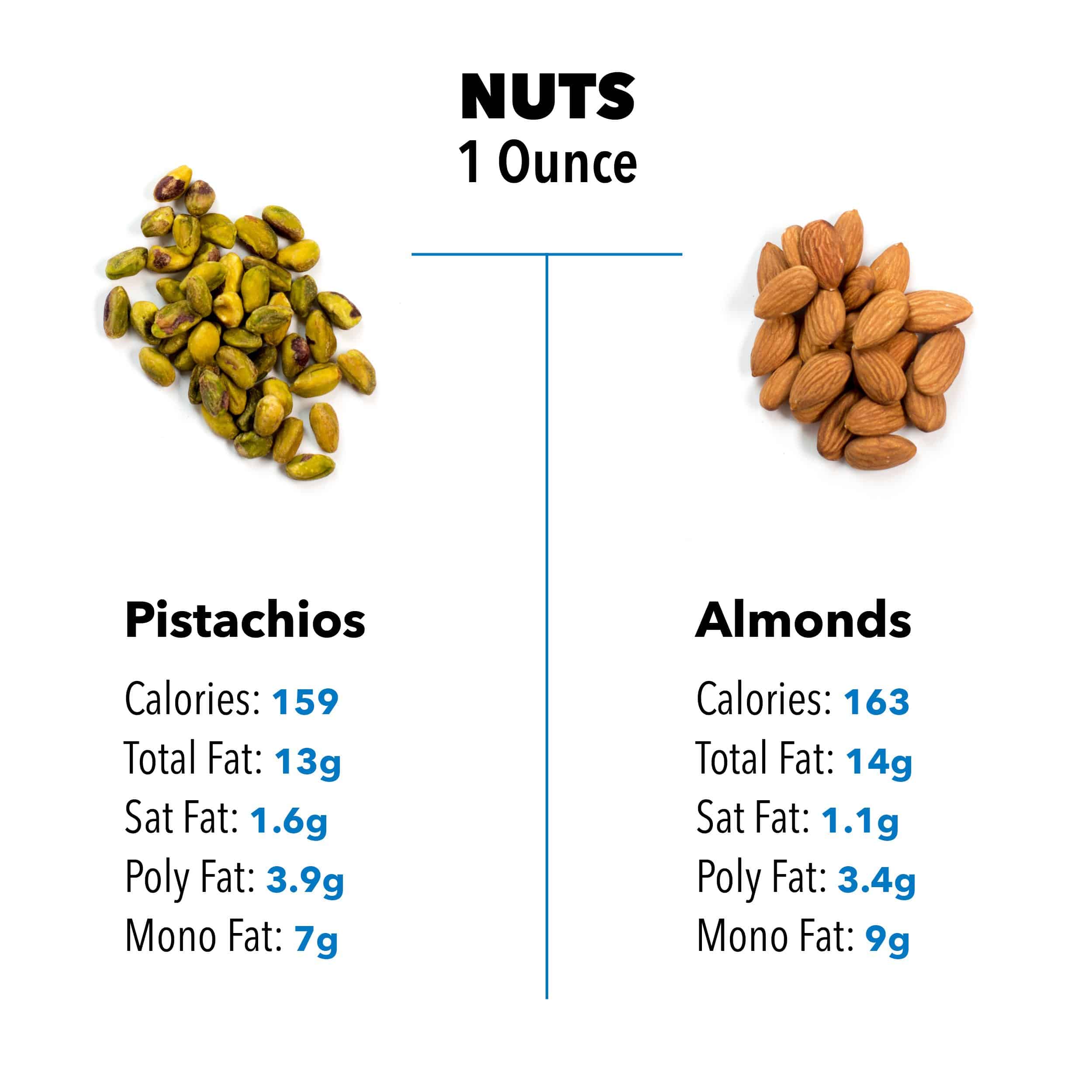
As you can see by the sheer difference in number between pistachios and almonds, serving sizes can be tough to estimate, not to mention small. For this reason, it’s best to use a food scale when portioning out a serving of nuts. While they have comparable calories, fat and protein (6g) per 1-ounce serving, each nut has something different to offer. Eat a variety of nuts to get the most nutritional bang for your buck.
One serving of:
- Pistachios provides 25% of the daily recommendation for vitamin B6 which is important for making disease-fighting antibodies.
- Almonds offer nearly 20% of the daily recommendation for magnesium which is important for protein synthesis and muscle and nerve function.
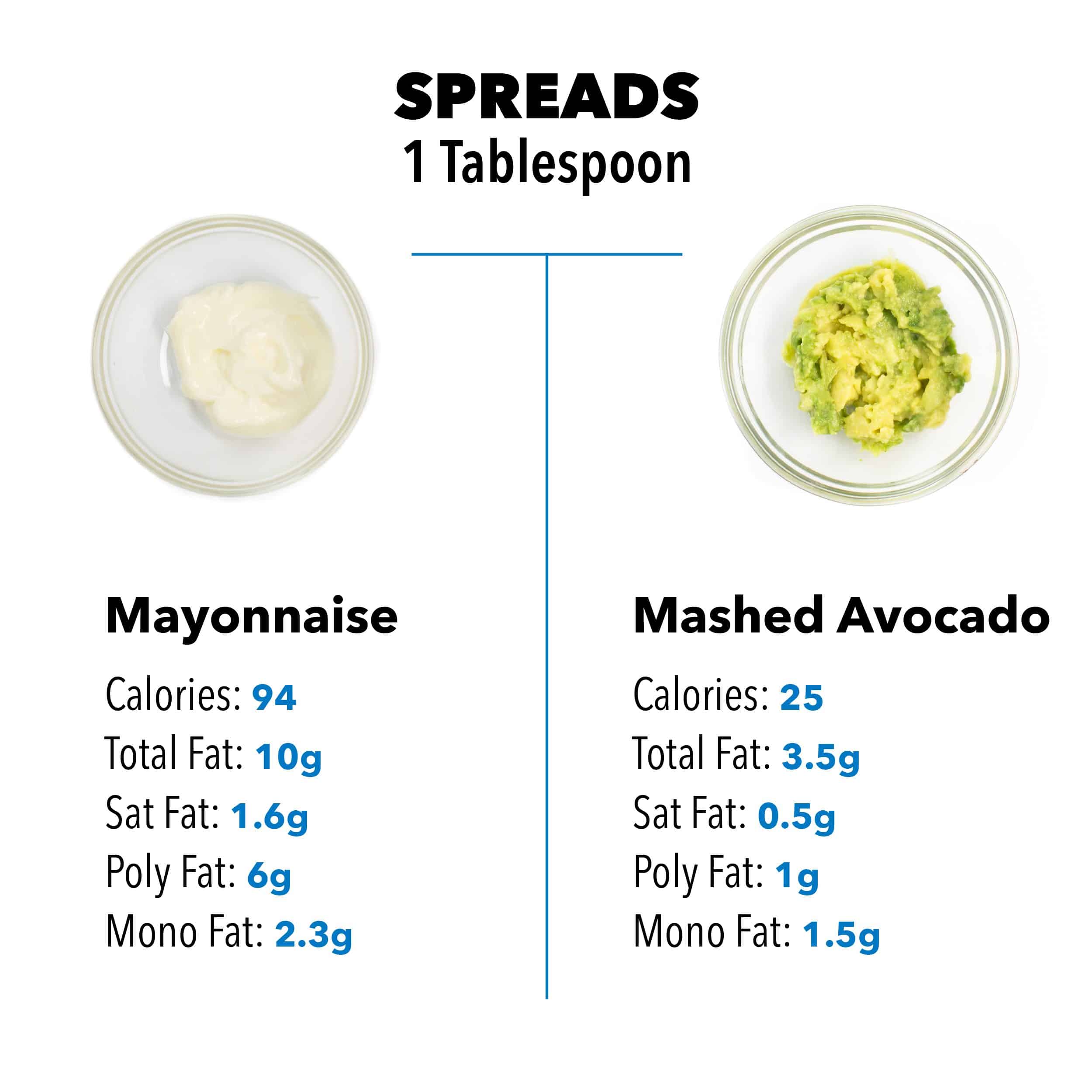
You may not think of avocado as a sandwich spread but it can be used in lieu of mayonnaise by simply spreading it on a piece of bread or mixing it into tuna, chicken and egg salad. Tablespoon for tablespoon, mashed avocado contains nearly 1/4 of the calories of mayonnaise and a greater percentage of unsaturated fats. Mayonnaise certainly has its place in the fridge, but consider using mashed avocado as a nutritious substitute, especially when making sandwiches.
